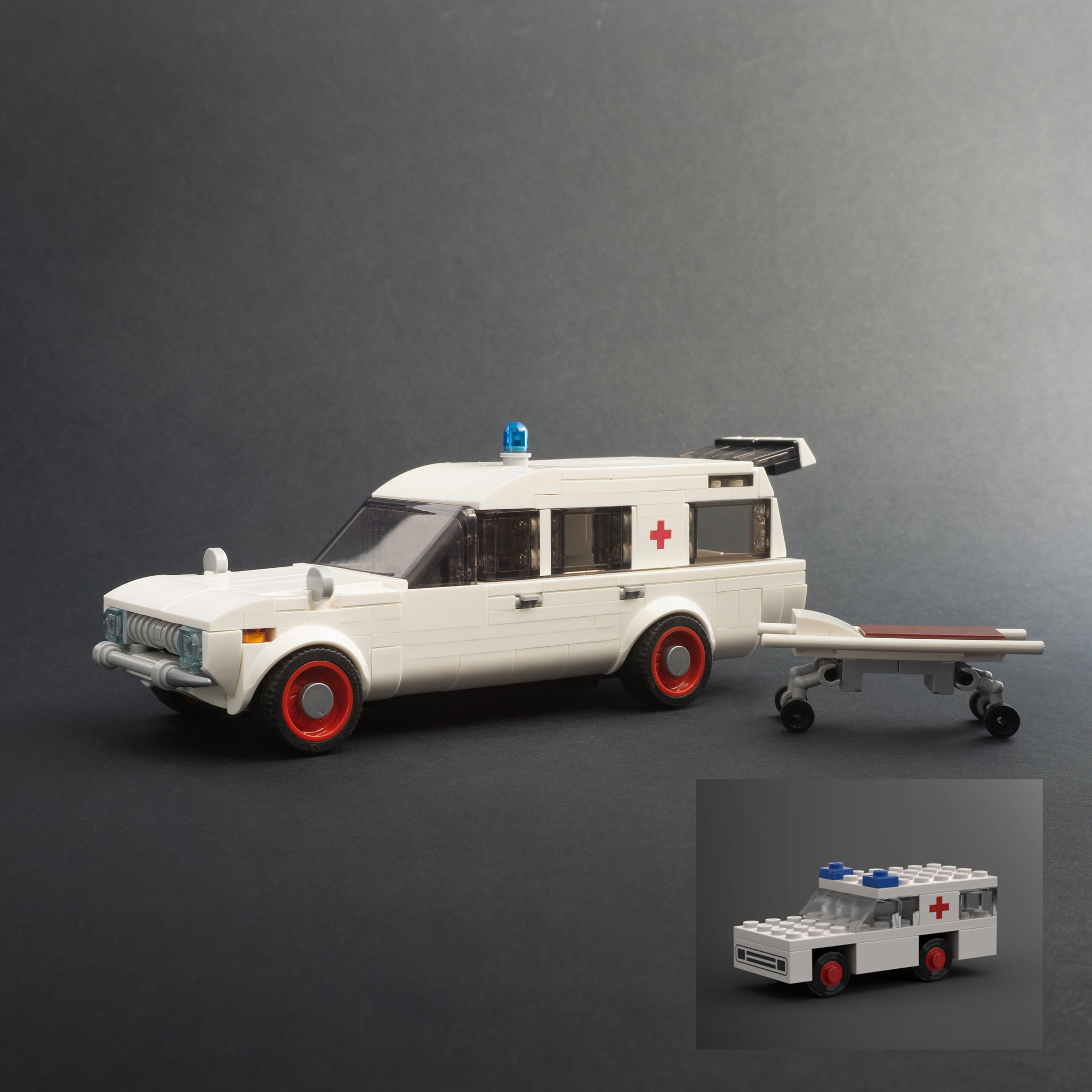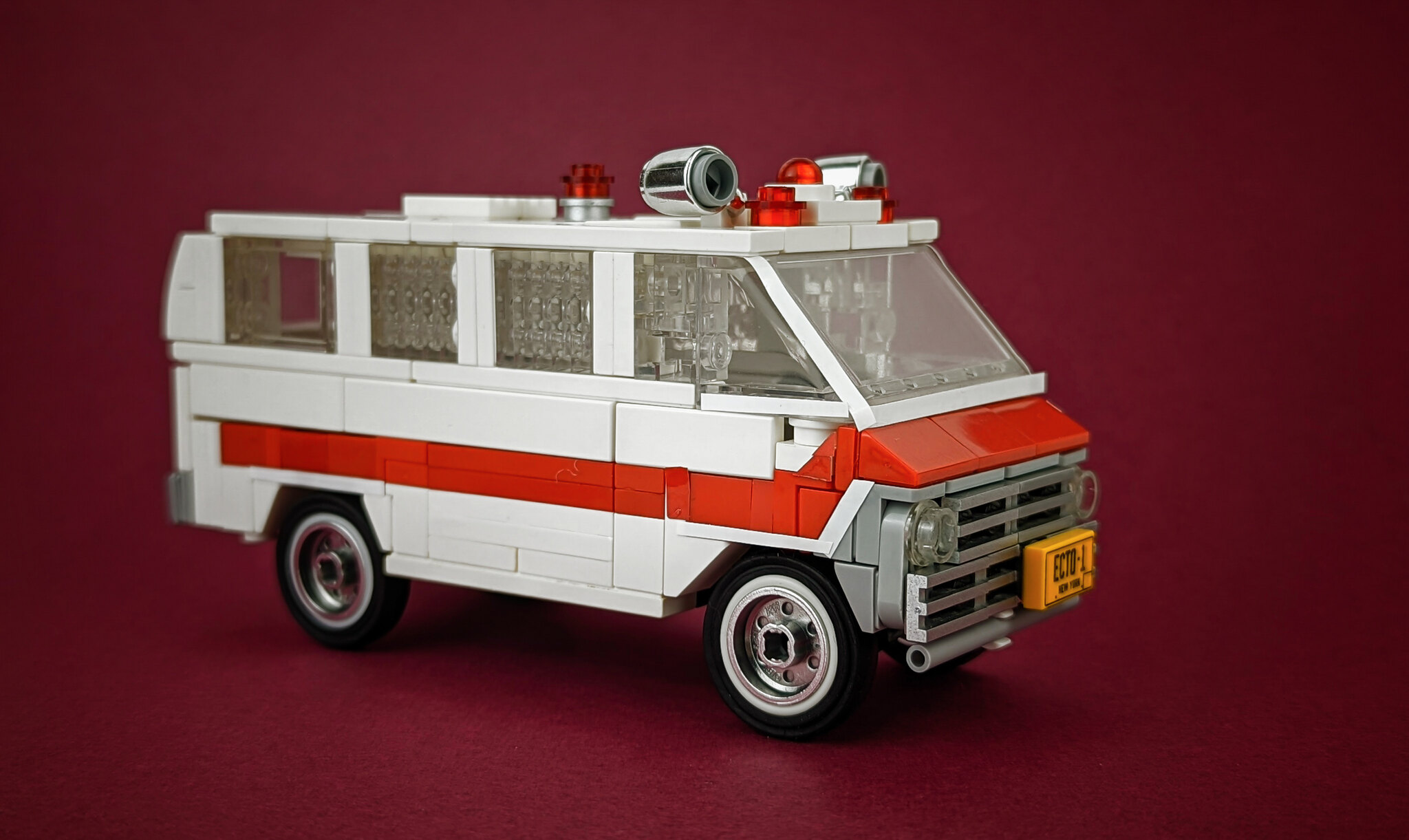A lot of young boys want to become policemen, firefighters, or paramedics when they grow up. I, too, was fascinated by emergency vehicles. There was something about their bright markings, flashing lights, and sirens. As an adult, I realise that the work done by emergency services can be far from glamorous, but emergency vehicles do make for fun and attractive LEGO models. So, I have built models of vehicles from Tokyo, New York and the Netherlands. For years I’ve also had a collection of vehicles from the UK. In the last few weeks, I had a go at building a few newer ones to replace models of vehicles that are no longer in service. They are a long-wheelbase Ford Transit van, as used by the London metropolitan police, and a Mercedes Sprinter ambulance used by the London ambulance service.

For most builders, myself included, painting LEGO is not an option. I do use stickers, but I build most of the color scheme into the model. Because of this, it can become integral to the model’s construction, and I very much enjoy figuring out how to include a particular pattern. Given their colorful liveries, this applies to models of emergency vehicles in particular. Nowadays, most British emergency vehicles use a distinctive checkered pattern, known as “battenberg” markings, after battenberg cake. On the ambulance, I built its blocks using green and lime green parts. This was not easy. The vertical boundaries between them have to line up with features of the vehicle. Furthermore, the blocks on the side of the van body all have the same length. Due to the scale of my model, I couldn’t recreate them using the straightforward studs-up building. So, I had to get creative. I ended up building most of the blocks sideways, to make them just a plate narrower.
The London metropolitan police switched to yellow and blue battenberg markings in 2012. Older vehicles still use a livery called a “jam sandwich” though. This, too is very distinctive: it’s a gold-colored stripe with orange and blue stripes above and below it. This was a lot easier to build. Frustratingly though, I did have to contend with variations in the gold color of the various elements, including multiples that came from the same set.

A high-visibility pattern of yellow and orange chevrons covers (part of) the rear of both vehicles. As I did with most of the lettering, using stickers for those would have given me a cleaner look. However, I do like the LEGO-like look I get by building them using bricks and plates. My vehicles are unmistakably LEGO models. Yet, almost anybody who knows what the real ones look like will recognise them.
I can’t imagine that Transit vans like mine will remain in service for much longer, but that is just the excuse I will need to build a newer vehicle in a couple of years’ time.
The Brothers Brick is funded by our readers and the community. Articles may include affiliate links, and when you purchase products from those links, TBB may earn a commission that helps support the site.





